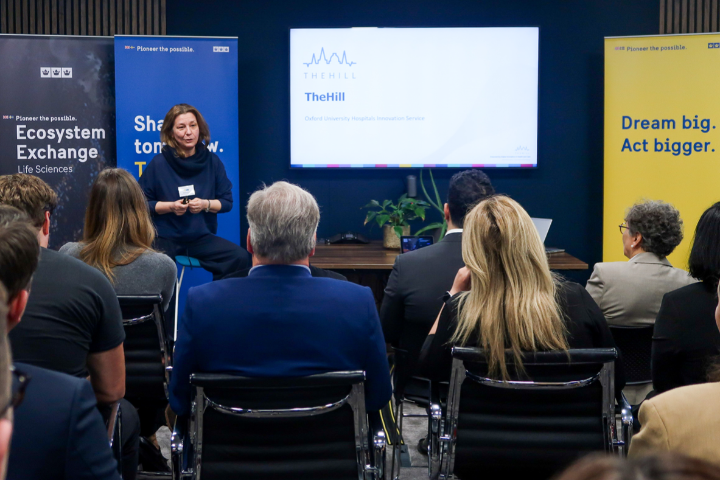
Gender equality for the new normal
08 March 2022
Guest column by Yael Nevo, Founding Director at Gender Rise
As our society and our businesses transition to ‘the new normal’, we now have a unique opportunity to challenge our old modus operandi and explore gender, and the work towards gender equality, in a wider sense. This guest column suggests a new approach that goes beyond DEI initiatives, towards an understanding of the role of gender dynamics in the creation of our current business modelling and its role in resolving our most urgent challenges.
What is the role of gender in the creation of ‘the new normal’? Let us consider the incorporation of a Gender Dynamics approach, and its greater capacity for both resolving current and future gender gaps, as well as tackling our most urgent social and environmental challenges.
As a starting point it is important to understand that the public sphere at large, and the business sector, more specifically, was originally designed to suit the needs of men. Therefore, though the social making (gender and otherwise) of our sector changed dramatically over the past decades, the model itself did not. Consequentially, what is considered ‘Normal’ is in fact gendered.
It is this discrepancy between an essentially masculine model and a diverse workforce, that is the core reason for our current gender gaps in pay, representation, career advancement and much more. With greater awareness coming to the fore in recent years, this model is being increasingly challenged. So, when it comes to creating a NEW normal, will we be able to un-gender some aspects of our business modelling to create companies that attracts and retains diverse talent, and better address the urgent challenges we are facing?
At the end of last year, I attended the SCC Outer Thinking annual conference, that explored and debated a wide range of topics. From data protection through net zero to the future of work, there was a sense of urgency and a clear agreement that great changes are needed and indeed already taking place. I found it interesting that some of the ideas and solutions that were discussed on the day, such as sustainability or mental wellbeing are in fact, from a Gender Dynamics perspective, a move towards gender equality. However, I believe that there is great value in exploring these solutions within a gendered context, especially in light of the major gender-related setbacks the Covid-19 pandemic created. Moving forward without gender consciousness would be a missed opportunity, resulting in partial solutions.
The current market approach to narrowing gender gaps is often part of DEI (Diversity, Equity and Inclusion) initiatives. The gender focus in this framework is mainly on how to bring more women and/or LGBTQI+ to the table. The undercurrent belief of this approach is that by having more women/LGBTQI+ (and other underrepresented groups), we will create a diverse work environment and make our businesses stronger, better performing, and more profitable. However, the attention here is on the individual of the underrepresented group to carry the weight of the organisational transformation, and though it led to some remarkable achievements and valuable best practices, the DEI framework is essentially a numbers game that can only take us so far.
To move forward in ‘The New Normal’, we must acknowledge that it is the old masculine gendered business model that led to where we are today by, in very general terms, prioritising ruthless and at times aggressive competition and individuality over people and planet. To resolve the great challenges we are facing, gender and otherwise, we must create better balance between socially assigned masculine and feminine values, towards a business model that incorporates feminine concepts, for example Care, as a core success indicator. It is this qualitative shift in values and actions that will then attract more diverse talent, who will be free to do their job without the burden of representation and tokenism.
To concretise this point let us follow, in broad terms, the example of the above-mentioned value of Care. In order to incorporate Care into organisational DNA and create balance in their gender dynamics, companies can use the GOST (Goal, Objectives, Strategy, Tactics) model to workshop an action plan:
- Goal: To be a caring company.
- Objectives Example: Ensuring an ethical supply chain.
- Strategies Example: Sign a new agreement with all suppliers regarding employee rights and environmental sustainability by Q4 2023.
- SMART Tactics Example: Survey all 10 suppliers to see where they currently stand by end Q2 of 2022. Create a collaboration with minimum 3 local charities and experts to support suppliers by early Q1 2023 and monitor their progress every 6 months.
It is only by acknowledging the inherent gendered nature of business decision-making, and treating gender equality as a business goal, that we can then bring together many of the siloed actions that companies are now taking as they transition to the ‘The New Normal’, under a unifying and gender conscious approach. This will address and resolve our greatest challenges at their core, and create a paradigm shift that is truly transformational and sustainable.
Yael Nevo (She / Her) is an award-winning Gender Consultant and Founding Director of SCC member Gender Rise, helping companies and organisations achieve sustainable gender equality and diversity through strategy, policy, and training. She holds over 20 year of international and multi-disciplinary gender work and research and collaborated with industry leaders such as LSE, The Guardian, Virgin, UNDP and GIZ.



